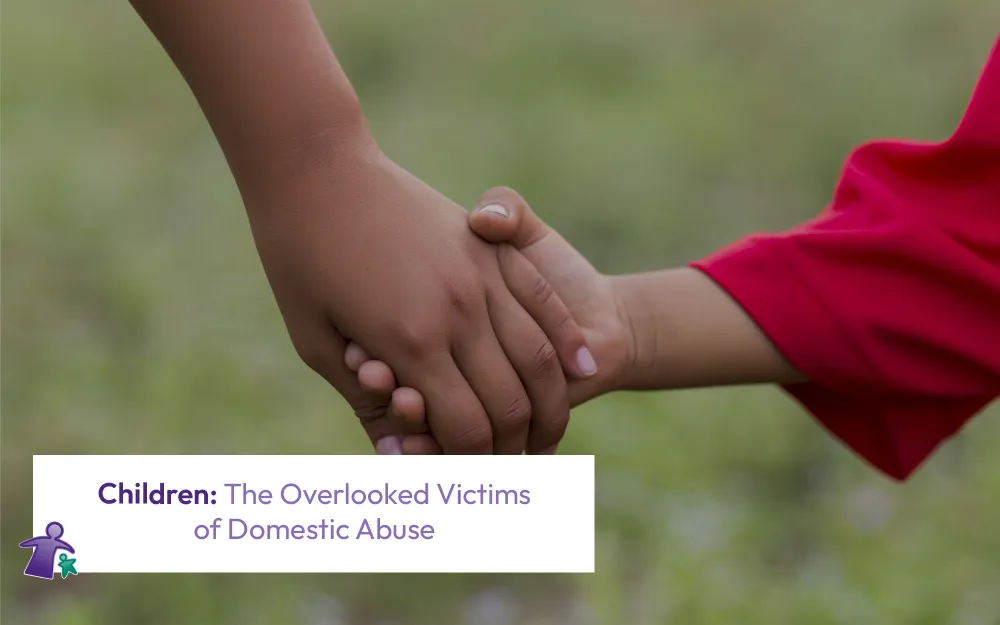
When we talk about domestic abuse, we often focus - quite rightly - on the experiences of adults directly impacted by the abuse. However, we must not overlook the often unseen victims: children and young people. Whether they witness abuse, hear it from another room, or live in a household overshadowed by fear and control, their experiences are real, valid, and potentially traumatic. In fact, the Domestic Abuse Act 2021 formally recognised children as victims in their own right when they see, hear, or are otherwise affected by domestic abuse - an important and overdue step forward.
But recognition alone is not enough. Support must follow. And according to recent findings from the Domestic Abuse Commissioner’s Office, that support is falling worryingly short.
A Fragmented System: The Reality Behind the Research
In March 2024, the Domestic Abuse Commissioner published a critical report titled “Victims in their own right?”, which investigated the current landscape of domestic abuse services for children across England and Wales. The report surveyed 168 commissioners of domestic abuse services and 266 service providers. It also drew on the experience and expertise of 870 professionals working directly with children - including teachers, social workers, and staff in family hubs.
The results were deeply concerning:
These figures paint a picture of a fragmented and overstretched system - one where access to vital support is determined not by need, but by postcode and purse strings.
Nicole Jacobs, the Domestic Abuse Commissioner, has warned that without urgent intervention, the government’s ambition to halve violence against women and girls by 2030 will not be met. If we do not address the lack of services for children now, we risk creating long-term harm that not only affects individuals, but perpetuates the cycle of abuse into the next generation.
Why Support Matters: The Impact of Abuse on Children
The effects of domestic abuse on children are complex and wide-ranging. Every child will respond differently depending on their age, personality, and the nature of what they experience. Some may become withdrawn or anxious. Others may display challenging behaviour or find it difficult to focus at school. Sleep problems, developmental delays, and issues with emotional regulation are also common. Crucially, the trauma may not end when the abuse stops.
In the long term, children who grow up in abusive households are at increased risk of:
This is why early intervention is so vital. The right support can significantly improve a child’s outcomes, helping them to process their experiences and build resilience. It also gives them something many lack in abusive environments: a voice. The opportunity to talk about how they feel, to be heard and believed, and to start healing.
Leeway’s Commitment: Giving Children the Support They Deserve
At Leeway, we believe passionately in supporting children and young people who are affected by domestic abuse. Our services are designed not just to meet their immediate needs, but to give them the tools to thrive in the future.
In Norfolk and Suffolk, we are proud to have dedicated Children and Young People’s Outreach teams, made up of experienced, compassionate professionals who work directly with young people to help them understand and process what they’ve been through. Our team creates safe spaces for children to talk, express themselves through play or creative activities, and feel less alone.
We also deliver a Healthy Relationship Programme, working in schools to educate young people about what healthy, respectful relationships look like. This proactive approach helps to prevent abuse before it starts and offers a confidential route for young people to seek help if they are experiencing or witnessing abuse at home.
These services are only possible thanks to the ongoing commitment of our team and the support of funders and partners. But we know we are fortunate - many areas across the country do not have the resources or funding to provide this level of support. That is not acceptable.
Looking Ahead: A Call to Action
It is time to recognise that supporting children experiencing domestic abuse is not optional - it is essential. If we are serious about ending domestic abuse, we must take a whole-family approach. That means acknowledging the needs of children and young people, investing in specialist support services, and ensuring no child falls through the cracks simply because the right help wasn’t available.
At Leeway, we will continue to advocate for children to be seen, heard, and supported - not just in Norfolk and Suffolk, but nationwide. Because every child deserves to grow up in a safe environment, free from fear, and full of hope.